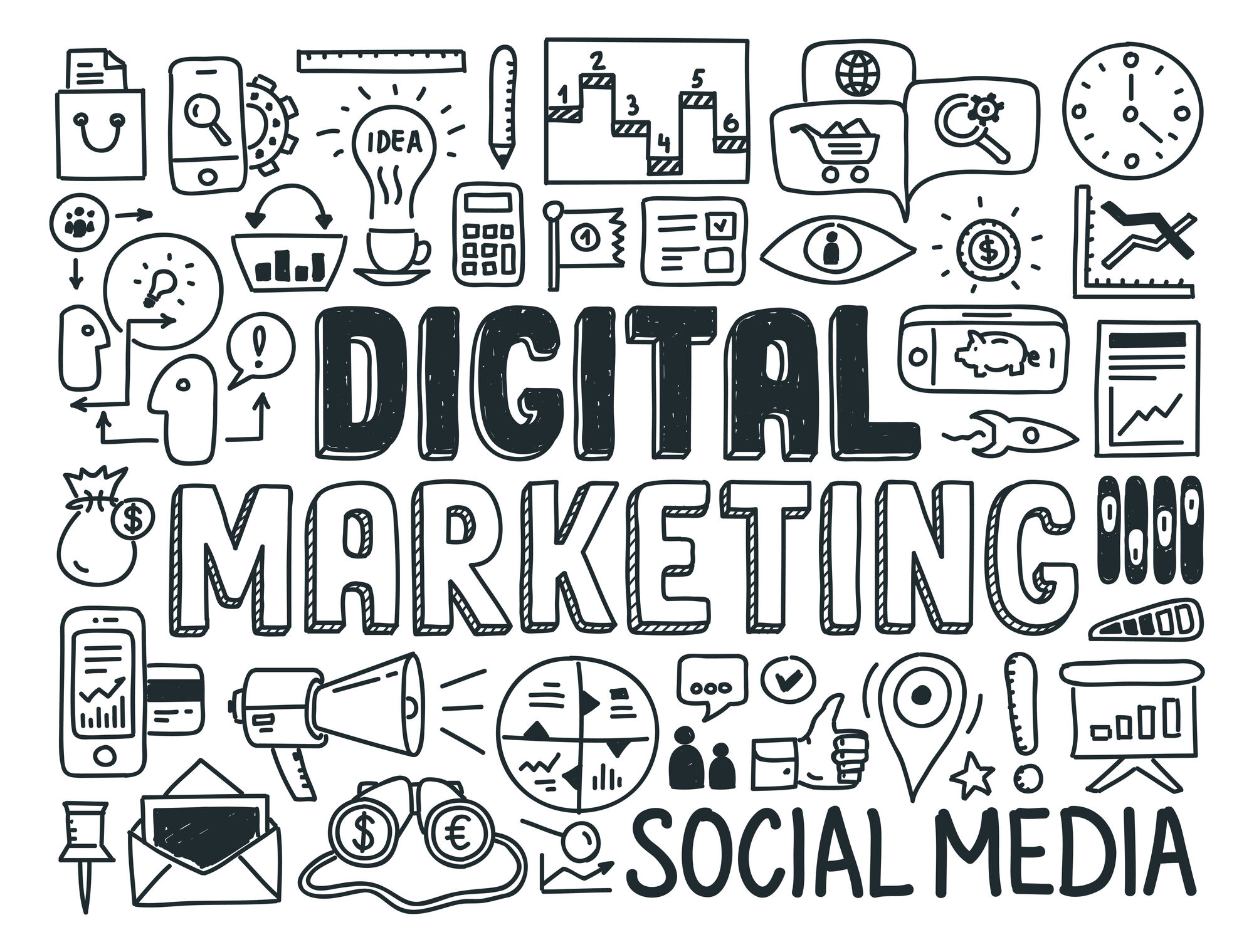 SIMT
SITASRM INSTITUTE OF MANAGEMENT & TECHNOLOGY
SIMT
SITASRM INSTITUTE OF MANAGEMENT & TECHNOLOGY
 SIMT
SITASRM INSTITUTE OF MANAGEMENT & TECHNOLOGY
SIMT
SITASRM INSTITUTE OF MANAGEMENT & TECHNOLOGY

SIMT
SITASRM INSTITUTE OF MANAGEMENT & TECHNOLOGY
Menu
How Influencer Marketing is Reshaping Brand Strategy: An MBA Marketing Perspective

Understanding Influencer Marketing Brand Strategy
Imagine you're about to buy a new gadget. Do you trust a glossy TV commercial, or a review from someone you follow online? Chances are, you lean towards the latter. This shift in trust is why Influencer Marketing Brand Strategy has become so powerful.
Traditional ads are losing their grip. Consumers now turn to authentic voices. Influencer marketing is about leveraging individuals with real credibility. They have an engaged audience. These people promote products or services. It's about genuine connection, not just reach.
This isn't just a fleeting trend. Influencer Marketing Brand Strategy is a fundamental shift. It's reshaping how brands connect, communicate, and grow. For MBA Marketing students, understanding this pivot is crucial. Future marketing leaders must master this domain to build and manage successful brands.
Influencer Marketing: Beyond the Hype for MBA Marketers
When we talk about influencers, we don't just mean celebrities. The world of influence is much broader. There are different types, each with unique value.
Macro-influencers have a very large reach. Think of famous personalities or big-name content creators. They can spread a message wide. Micro-influencers have a smaller, more niche audience. But their engagement is often very high. Their followers feel a stronger connection. Nano-influencers are even smaller. They might have a few hundred to a few thousand followers. Yet, they have intense loyalty, often within a hyper-local community.
Each type fits different Influencer Marketing Brand Strategy goals. Consumers often trust micro and nano-influencers more. They perceive them as more authentic. They share genuine interests.
From a brand's view, the process is simple. First, you find the right influencers. Then, you collaborate on content. After that, you distribute your messages. Finally, you engage with the audience. It's all about building real relationships.
The Strategic Shift: Why Influencer Marketing Reshapes Brand Strategy

Why are brands moving towards influencers? There are several key reasons. These reasons show how Influencer Marketing Brand Strategy is changing the game.
- Building Trust & Credibility: People are tired of aggressive advertising. Influencers offer a fresh approach. They lend their personal credibility to brands. This helps bypass consumer skepticism. It builds genuine trust.
- Targeted Reach & Niche Segments: Influencers allow precise targeting. Brands can partner with someone whose audience perfectly matches their ideal customer. This reaches specific demographics. It's often harder to do with mass media campaigns. This focus is a core part of any smart Digital Marketing Strategy.
- Content That Resonates: Influencers are masters of creating engaging content. Their posts feel natural. They blend seamlessly into social media feeds. This makes brand messages more palatable. It's much more effective than disruptive ads.
- Cost-Effectiveness & Potential for High Marketing ROI Influencers: For many brands, influencer marketing can be very efficient. It can achieve high engagement and conversions. This is especially true within specific niches. When done right, it can offer a strong return on investment.
- Adaptability & Agility: Influencer campaigns are quick to set up. Brands can launch them fast. They can also adapt them quickly. This agility lets brands respond to market trends or sudden events. It's much faster than traditional advertising campaigns.
- Shifting Consumer Behavior: Modern consumers are different. They actively seek recommendations. They trust peers and online personalities. This fundamental change in how people discover products makes influencers crucial.
Crafting an Effective Influencer Marketing Brand Strategy: An MBA Perspective
Building a successful Influencer Marketing Brand Strategy requires careful planning. It's more than just sending free products.
1. Defining Clear Objectives
Don't just aim for sales. Link your campaigns to bigger goals. Do you want brand awareness? More engagement? Lead generation? Thought leadership? A clear objective guides your entire strategy. It connects with your overall Digital Marketing Strategy.
2. Influencer Identification & Vetting
This is vital. Don't just look at follower counts. Research is key. Check their audience demographics. Look at their engagement rates. See their content quality. Does their past work fit your brand? Use dedicated influencer platforms or social listening tools. These help you find and analyze potential partners.
3. Collaborative Content Creation
Give influencers creative freedom. But also ensure your brand message is clear. It's a balance. Content formats can vary widely. Think authentic reviews, engaging tutorials, or social media takeovers. You might use compelling unboxing videos or aspirational lifestyle posts. Long-form blog content can also be effective.
4. Relationship Management
Aim for long-term partnerships. One-off transactions are less effective. Build mutual benefits. Compensation must be fair. This could be monetary fees, product gifting, or performance-based commissions. Clear communication is always essential.
5. Campaign Amplification
Don't let influencer content just sit on their page. Brands should repurpose it. Share it across your own channels. You can also use paid amplification. This means boosting influencer posts as ads. It extends their reach. It helps target specific demographics.
6. Legal and Ethical Compliance
This is crucial for Brand Building Influencers. Transparency is paramount. Follow advertising guidelines (like FTC in the US or ASCI in India). Disclose sponsored content clearly (using #ad or #sponsored). This maintains consumer trust. It helps avoid reputational damage.
Measuring Success and Proving ROI in Influencer Marketing
How do you know if your Influencer Marketing Brand Strategy is working? You need to measure.
Key Performance Indicators (KPIs):
- Awareness: Look at reach, impressions, and brand mentions. How much did your brand's visibility grow?
- Engagement: Check likes, comments, shares, and saves. Are people interacting with the content?
- Conversions: Track clicks to your website. Use unique links or discount codes to see sales directly from campaigns.
- Brand Sentiment: Use tools to analyze comments. What is the overall feeling about your brand after the campaign?
Measurement can be complex. It's hard to directly attribute sales to one influencer post. The customer journey has many touchpoints. Quantifying brand lift can also be tricky.
As an MBA marketer, you need strategic reporting. Focus on business objectives. Show how the campaign contributed to them. Demonstrate Marketing ROI Influencers by linking efforts to tangible outcomes.
Challenges and Ethical Considerations
While powerful, influencer marketing has challenges. Authenticity can be a concern. There are fake followers and bots. Some endorsements might not feel genuine. Brand safety is another issue.
An influencer's controversial behavior can harm your brand's reputation. Disclosure fatigue is real. Consumers might get tired of seeing "#ad" everywhere.
This makes consistent, clear disclosure an ongoing challenge. Regulation is also evolving. Advertising standards are always changing. Brands must stay updated.
Conclusion: The Enduring Power of Authentic Influence
Influencer Marketing Brand Strategy has fundamentally changed how brands operate. It offers unparalleled opportunities for authentic connection. This isn't just one of the latest MBA Marketing Trends; it's a core component.
We predict continued growth and sophistication. There will be a greater focus on authenticity. Long-term partnerships will become more common. Data will drive more decisions. Niche communities will gain even more power.
For aspiring MBA Marketing students, mastering this domain is no longer optional. It's essential. It's how you will successfully build and manage brands in the digital age. Embrace this powerful tool. Use it to truly understand and engage with your target audience.



















































